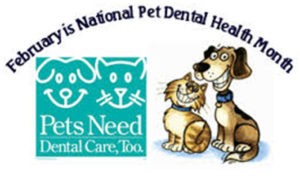Hosting Thanksgiving dinner as a pet owner can come with its own unique set of concerns: How do I keep the dog from swiping the turkey off the counter before it’s served? Luckily, here are 5 Thanksgiving dinner tips for dogs and cats below. After all, Thanksgiving should be a day to safely enjoy delicious food with all of your loved ones — including our four-legged friends!
1. Don’t slip your pet these dangerous foods.
Just can’t resist that pitiful stare from underneath the table? If you can’t bear to leave your furriest family member out of the holiday feast, be aware that there are certain foods that could be dangerous for them to indulge in. Rich or fatty foods can cause pancreatitis or gastrointestinal upset, while onions, garlic and some spices are actually toxic to animals. It can be very tempting to offer pets food from the table, but pets should not be given human food unless recommended by your veterinarian.Here’s a list of what holiday foods could be harmful to your pet.
Xylitol
Xylitol is an artificial sweetener found in products such as gum, candy, mints, toothpaste, and mouthwash. Xylitol is harmful to dogs cause it causes a sudden release of insulin in the body that leads to hypoglycemia (low blood sugar). Xylitol can also cause liver damage in dogs. Within 30 minutes after eating, the dog may vomit, be lethargic (tired), and/or be uncoordinated. However, some signs of toxicity can also be delayed for hours or even for a few days. Xylitol toxicity in dogs can be fatal if untreated. It is unknown whether xylitol is toxic to cats.
Chocolate, Coffee, and Caffeine
Chocolate contains theobromine, a chemical that is toxic to dogs in large enough quantities. Chocolate also contains caffeine, which is found in coffee, tea, and certain soft drinks. Different types of chocolate contain different amounts of theobromine and caffeine. For example, dark chocolate and baking chocolate contain more of these compounds than milk chocolate does, so a dog would need to eat more milk chocolate in order to become ill. However, even a few ounces of chocolate can be enough to cause illness in a small dog, so no amount or type of chocolate should be considered “safe” for a dog to eat. Chocolate toxicity can cause vomiting, diarrhea, rapid or irregular heart rate, restlessness, muscle tremors, and seizures. Death can occur within 24 hours of ingestion.
Grapes and Raisins
Grapes and raisins can cause acute (sudden) kidney failure in cats and dogs. It is unknown what the toxic agent is in these fruits. However, clinical signs can occur within 24 hours of eating and include vomiting, diarrhea, and lethargy (tiredness). Other signs of illness relate to the eventual shutdown of kidney functioning.
Avocados
The avocado tree leaves, pits, fruit, and plant bark are likely all toxic. Clinical signs in dogs and cats include vomiting and diarrhea.
Garlic and Onions
Garlic and onions contain chemicals that damage red blood cells in cats and dogs. Affected red blood cells can rupture or lose their ability to carry oxygen effectively. Cooking these foods does not reduce their potential toxicity. Fresh, cooked, and/or powdered garlic and/or onions are commonly found in baby food, which is sometimes given to animals when they are sick, so be sure to read food labels carefully.
Macadamia Nuts
Macadamia nuts are common in candies and chocolates. The mechanism of macadamia nut toxicity is not well understood, but clinical signs in dogs include depression, weakness, vomiting, tremors, joint pain, and pale gums. Clinical signs can occur within 12 hours after eating. In some cases, signs can resolve without treatment in 24 to 48 hours, but patient monitoring is strongly recommended.
2. Teach your dog to stop begging at the table.
Although there might not be time to completely retrain your dog in time for Thanksgiving, there are steps you can take to help prevent him from begging at the table. Make sure everyone in your family is consistent about not feeding your dog from the table. It’s important to remain strong and not give in to any whining or barking. Encouraging alternative behaviors while everyone is eating, like providing your dog with a toy to chew on, can also be extremely helpful.
3. Keeps cats and dogs off your counter.
While you might not have a problem with your kitty having free reign over the kitchen, your guests may not feel the same. Prevention is the key to keeping your cat or dog off the counters: Don’t leave food unattended and try to keep pets away from the kitchen and dining area. And when guests offer to help you clean up and put food away, take them up on it and prevent leftovers from sitting out.
4. Make sure your guests, especially children, know how to interact properly with pets.
When hosting Thanksgiving, it’s probably a sure bet that your pet will be around some unfamiliar faces. Be sure your guests, especially children, know how to safely interact with your dog or cat. Keep greetings in an open area, give your pet adequate space and don’t allow guests to pick him up. However, if you know your pet will be uneasy with a crowd of people, it may be best for everyone to keep him in a separate area away from guests or at least allow him to have an area he can easily escape to when he wants to.




